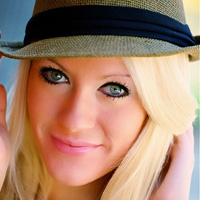Steve Jobs is possibly the most famous college dropout and touted as our modern Thomas Edison. But who was he really? The late entrepreneur and Apple founder is portrayed by doppleganger Ashton Kutcher in the highly anticipated Jobs, which hit theaters Friday.

The flick, a mixture of cheesy sentimental moments and surprising realities about the founding of Apple, is brimming with batshit moments—such as Jobs never wearing shoes, or refusing to claim responsibility for his daughter, even when presented with the results of a paternity test. Here, we run down the nine craziest moments from Jobs.
No Shoes, No Problem
You’ve heard of the barefoot bandit, but Steve Jobs was the barefoot student. At Oregon’s hippie Reed College, he was known by teachers and classmates alike for his unconventional footwear—or lack thereof. Even after his campus days, his barefoot ways continued. “He bought vegetables from the Palo Alto Whole Foods Market, where he was often seen walking barefoot,” wrote the International Business Times of the late creator. Kutcher’s interpretation in the film was almost always without shoes, except for the occasional Birkenstock sandals or later on, his trademark New Balance sneakers.
OCD
Steve Jobs was obsessed with computers, innovation, and minimalist design. But some of his colleagues and employers over the years considered his obsessive nature a debilitating problem. In one scene of the movie, Jobs says to his then-small Apple staff, “We gotta make the small things unforgettable,” in reference to fixing the computer’s font selections. When an employee responds realistically: “Typeface isn’t a pressing issue,” Jobs fires him on the spot.
Power Politics
When Steve Jobs wanted something, he didn’t rest until he got it. That’s how he scored the chief of PepsiCo, John Sculley, to be Apple’s CEO. Jobs loved the executive’s approach to marketing and sales so much that he wouldn’t settle for anyone else for the post. But once the new CEO took over, the “creative differences” between the two were so immense that the computer-maker’s founder couldn’t stand him. As the film depicts, that didn’t matter much to Sculley or the Apple board, who by unanimous vote left Jobs with no control over his own company. “You are your own worst enemy,” Sculley (played by Matthew Modine) says to Jobs.
Jobs vs. Gates
It was the ultimate battle of the tech kings: Steve Jobs vs. Microsoft mogul Bill Gates. Although it’s unclear as to when and how the pair’s relationship turned sour, one scene in the film shows Kutcher screaming on the telephone at the top of his lungs. “You stole my software!” he screeches to Gates. “You won’t make another dollar until I’ve taken the first 90 cents!”
Illegal Activity
During his “fuck the education system” phase at Reed College, we see Kutcher as Jobs doing drugs with his friends: After snagging several acid tabs, his best friend and girlfriend saunter under the shade of a giant tree and indulge in an afternoon trip. Kutcher finds a field of tall grasses and, in a retrospective moment, mediates, dances, and hallucinates about a trip to India.
Cheater
Where did he acquire the acid? From a nameless classmate with whom he spent an hour or two rolling around in the sheets—in lieu of attending class. He took three pieces—for himself, his best friend, and his girlfriend. Monogamous, Steve Jobs was not.
Bad Friend
Apple Computer started as a half-dozen dudes in a garage. While Steve excelled at getting funding for the company, each person contributed a specific skill set to the success of the business. Years later, Jobs became the face of the giant—but when confronted with the decision of how to reward the original founders, he didn’t, offering them zero options, thus screwing over his closest friends. (The Social Network, anyone?)
Worse Daddy
In the movie, when Jobs’s college girlfriend tells him she’s pregnant, he responds in terrible form. In an enraged panic, he tells her there is no way the child could be his, even after she reassures him she hasn’t been with anyone else. He refuses to believe her, and screams at her to leave his sight.
When the child is born, Jobs takes a paternity test that confirms he is the father. Yet Jobs is not convinced, claiming that paternity tests are flawed. In the same scene, he refuses to sign papers that would allow him visitation rights. His lawyer assures him that whether he signs the papers or not, the mother is still entitled to child support.
Years later, we see Jobs in bed with a random naked woman sleeping next to him. He opens a letter from his daughter, scrawled in uneven crayon: “Dear Daddy, can I come see you soon?”
Steve Inc.
In one particularly telling scene, Jobs walks into a bay where his employees are tediously working away. They don’t notice him, until one looks up and yells, “Jesus!” To which Jobs replies, “No, just Steve.”






